As Pakistan enters its 76th year since its inception, the seemingly joyous occasion is tainted with echoes of trepidation and dismay at our present-day reality:
A seemingly democratic system of governance reduced to shambles, censorship laws overruling individual liberties regarding self-expression, and communal violence fostered on religious and ethnic grounds.
The question that then begs to be asked is: How Did We Get Here? It’s easy to blame the current political landscape and the personalities that thrive in such an atmosphere; however, this thought process seems to be a gruesome oversimplification of the problems plaguing our developmental topography. To truly understand the fundamental inadequacies continually pulling us towards a series of misfortunes, we must take an analytically retrospective look at the phenomenon we now call ‘The Creation of the Pakistani State.’
In August 1947, Viceroy Lord Mountbatten wielded his legislative powers to issue hasty and miscalculated decrees that brought into existence Pakistan’s individuality as an internationally recognized ‘Country,’ ‘State,’ and ‘Nation.’ Often used interchangeably, all three terms are used to define multiple elements of a superseding concept of ‘Country’: ‘State’ refers to a self-governing political entity constrained by geographical boundaries and run by formal institutions, while ‘Nation’ encompasses people grouped by religious, ethnic, linguistic, or historical ties.
The erosion of cultural identity through language and globalization is a growing concern.
For a country to succeed — in terms of economic superiority, military might, or social order — two notions are conceptualized: State Building and Nation Building. Francis Fukuyama, in his book ‘Political Order and Political Decay,’ defines State-Building as “the creation of tangible institutions — armies, police, bureaucracies, ministries, and the like.” Nation-Building, on the other hand, is characterized by intangible commodities: customs, conventions, traditions, etc.
Pakistan’s state-building capacities began with the drafting of a constitution in 1956, subsequently revised in 1962, and finally in 1973. Political institutions and universal suffrage were established, with provincial cabinets and ministries working as intermediaries between competing federal and provincial interests. Throughout its creation, Pakistan has also been engaged in a costly battle between autocratic forces of control, such as military dictatorships, and civilian governments parading the banner of democracy.
While most of our resources, literature, and time have been devoted to refining these institutions and fighting against waves of corruption, negligence, and coercion, a greater deficit in regard to the state’s nation-building capacities is consequentially being created.
In retrospect, Muhammad Ali Jinnah’s decision to coalesce territorial and cultural disparities through the use of a common language, Urdu, was the first step towards creating a cohesive Pakistani identity. Subsequent endeavors were undertaken by proponents of the discipline of Arts – Faiz Ahmad Faiz, Anwar Maqsood, and Fahmida Riaz are among a plethora of poets and writers that contributed to the creation of a ‘nation’ by crafting stories centered around a central idea of a Pakistani identity.
A seemingly democratic system reduced to shambles, censorship laws overruling liberties.
Arguably the strongest and most effective means of solidifying a national identity and stimulating patriotic zeal and fervor — the threat of foreign intervention and dominance — knocked on Pakistan’s doorstep first in the Indo-Pak wars of 1965 and 1971, and then the Kargil skirmish of 1999. The Pakistani state effectively rallied its public behind the army, sentiments that have been echoed in the cases of Kashmir and Palestine as the nation continues to show solidarity with its Muslim Ummah.
In recent years, however, the foundations etched in stone regarding our identity seem to be eroding at an alarming rate. From the education sector to corporate communications, English has replaced Urdu as a representative language, while our provincial linguistic subgroups — Punjabi, Sindhi, Pashto, etc. — are on a path towards deracination. Globalization continues to penetrate every aspect of our selfhood, with the Western Modus Operandi taking precedence over our innate cultural and moral values.
As more and more people disillusioned by the predicaments of our endemic and political realities opt to migrate to more ‘hospitable’ countries, lured by the promise of the American Dream, the question of preserving our national identity becomes an increasingly pertinent one.
Even if Pakistan succeeds in creating a relatively stable state, the essential question remains: will there be a nation to enjoy it?
The author is an A-Level student with a keen interest in politics and international journalism.

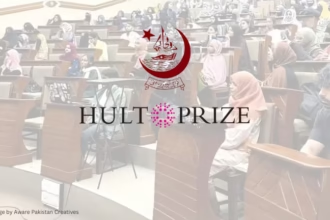
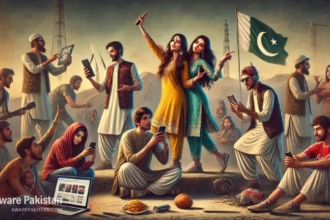
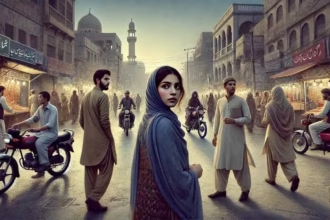
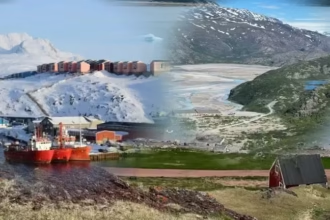
You raised a good question, Sabeen ! Well, we need to work on our identity as a nation besides striving to make Pakistan an independent and stable state. Thought-provoking content.
Well attempt Sabeen, the creation of Pakistan, and later attempts to experiment with its federalism made it more autocratic rather than a welfare state as promised to the people. The legacy of hasty and unplanned partition continues to affect the socio-economic and political history of Pakistan. People became more pseudo-Islamic and exploited at the state level to achieve temporary gains which further created an identified crisis among those communities that suffered and had given sacrifices for Pakistan. All those fancy narratives paved the way for destroying the lethal social fabric and chaos among the public.
Looking forward to reading more from your side.